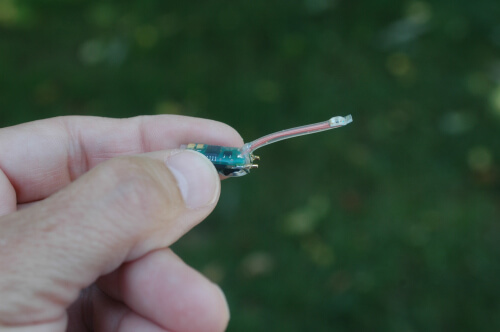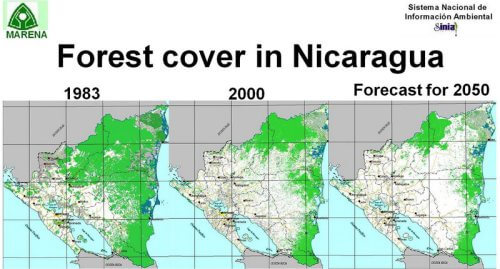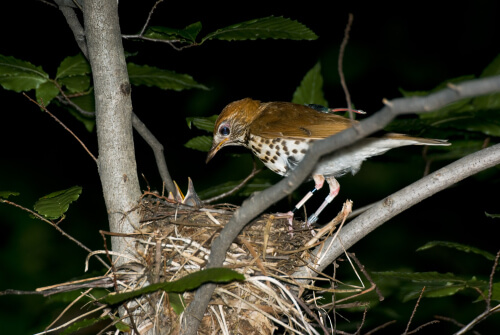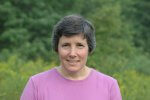Help Save Wood Thrush: Drink Bird-Friendly Coffee
By Bridget Stutchbury
The Wood Thrush is an ambassador for the forest birds of eastern North America, and a modern-day "canary in the coal mine." According to the Breeding Bird Survey (BBS), this species has declined by over 50 percent since systematic counts began in the late 1960s.

Wood Thrush, Paul Tessier/Shutterstock
I wrote about the demise of the Wood Thrush in Silence of the Songbirds, and since then I have received dozens of comments from readers about the emotional loss they feel when the Wood Thrush disappears from their neighborhood. Wood Thrushes are rarely seen, but their flute-like song is bold, beautiful, and full of life. Summer evenings used to bring a refreshing and ringing dusk chorus of “ee-oh-lay” from thrushes in the forest by their house, but now several years have gone by with none at all. Each spring brings new but diminishing hope.
What can be done to bring their beloved thrushes back? My answer is to drink Bird Friendly® coffee (which is organic, fair trade, and shade grown) to help give Wood Thrushes a safe place to spend their winter when they are thousands of miles from our back yards.
Tracking Birds with Tiny Backpacks
Where exactly do our Wood Thrushes go after they are finished breeding? To find out, I have used newly miniaturized tracking devices called "geolocators," which the birds carry as a little backpack and which must be retrieved and downloaded when the bird returns to its breeding site the next year. The geolocator measures light levels every few minutes, and then sunrise and sunset times can be converted into latitude and longitude.

Geolocators are "light loggers" and use sunrise and sunset times to determine a bird's location. Photo by Bridget Stutchbury.
In May 2008, my graduate students caught the very first Wood Thrush to be tracked for its entire migration. At the same time that this forest in northern Pennsylvania had been buried under 18 inches of fresh lake effect snow, "our" Wood Thrush was in Nicaragua and completely at home in a world of strangler figs, howler monkeys, and toucans. I was stunned to see that in spring this bird had flown 2,300 miles in only two weeks.

Most Wood Thrushes from the central- and north-eastern part of the breeding range winter in eastern Honduras, Nicaragua, and Costa Rica. Source: Stutchbury et al. (2009) Science 323: 896.
Of the five Wood Thrushes tracked that first year, all spent our winter living in eastern Honduras and Nicaragua. This was not just a coincidence. We have now tracked over 70 Wood Thrushes that bred in the central-east or north-east part of the breeding range, and the vast majority also wintered in eastern Honduras, Nicaragua, or western Costa Rica.
This part of Central America is a Wood Thrush hotspot, but the tragedy is that it is also a deforestation hotspot and is losing its tropical forests at one of the highest rates in the world. According to the Food and Agriculture Organization 2011 State of the World's Forests report, since 1990 Honduras has lost 27 percent of its forest, and Nicaragua 31 percent, to agriculture.
It should come as no surprise, then, that Wood Thrushes who depend on those forests are disappearing quickly. The scale of our assault on this endearing forest icon is enormous; the North American population size of Wood Thrushes has dropped by about 12 million birds since the 1960s.

The Ministry of the Environment and Natural Resources in Nicaragua maps of forest loss show the extreme level of deforestation in the recent past, and for the coming decades.
You Can Help with Bird-Friendly Coffee
Bird-Friendly coffee farms are high-quality forested habitat for dozens of species of migratory songbirds, as well as tropical birds that there live year round. In the village of San Juan del Río Coco, Nicaragua, a cooperative of more than 400 small coffee producers raise more than 2.5 million pounds of certified Bird-Friendly coffee every year. This one co-op adds up to about 8,000 acres, a green oasis that is surrounding by miles of deforested land devoted to pasture, sun coffee, and other crops.
Saving heavily shaded coffee farms throughout this region would protect tens of thousands of acres of habitat for Wood Thrush. But farmers need your help.
As Jefferson Shriver's blog post illustrates, small and medium-size coffee farmers gain many ecological and economic benefits from keeping a multi-layered and diverse set of tree species on their farm. Recent studies have shown that birds can directly benefit farmers by controlling insect pests and increasing coffee production.
What is missing is large-scale support and commitment from the millions of coffee drinkers in America. Too many birders are not aware of the benefits of shade coffee to birds and farmers, or do not realize how easy it is to buy Bird-Friendly coffee and help the birds they love.
What can you do to make sure that our Wood Thrushes and other forest songbirds remain common and serenade future generations for years to come? Drink Bird-Friendly coffee!
Bridget Stutchbury is a professor at York University, Toronto. Since the 1980s, she has followed songbirds to their wintering grounds in Latin America and back to their breeding grounds in North America to understand their behavior, ecology and conservation. Bridget is author of Silence of the Songbirds (2007) and The Private Lives of Birds (2010).
Editor's Note: At American Bird Conservancy, we're drinking Birds and Beans coffee. The quality is excellent, and since we're all about conserving birds, nothing less will do! We find it easy to order: Just set up a recurring subscription and you'll never have to worry about where to get coffee again.




















































